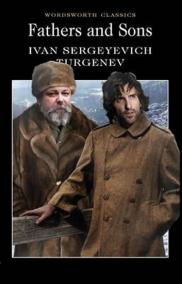Fathers And Sons
Dátum vydania: 27.02.2017
With an Introduction by Lionel Kelly, University of Reading. Translated by C.J. Hogarth. Fathers and Sons is one of the greatest nineteenth century Russian novels, and has long been acclaimed as Turgenev's finest work. It is a political novel set in a domestic context, with a universal theme, the generational divide between fathers and sons. Set in 1859 at ...
Detaily o knihe
Počet strán: 240
Rozmer: 124x192x16 mm
Hmotnosť: 159 g
Jazyk: Anglicky
EAN: 9781853262869
Rok vydania: 2017
Žáner: Svetová klasika
Typ: Paperback
Zákazníci, ktorí si kúpili túto knihu, si kúpili aj...
O knihe
With an Introduction by Lionel Kelly, University of Reading. Translated by C.J. Hogarth. Fathers and Sons is one of the greatest nineteenth century Russian novels, and has long been acclaimed as Turgenev's finest work. It is a political novel set in a domestic context, with a universal theme, the generational divide between fathers and sons. Set in 1859 at the moment when the Russian autocratic state began to move hesitantly towards social and political reform, the novel explores the conflict between the liberal-minded fathers of Russian reformist sympathies and their free-thinking intellectual sons whose revolutionary ideology threatened the stability of the state. At its centre is Evgeny Bazorov, a strong-willed antagonist of all forms of social orthodoxy who proclaims himself a nihilist and believes in the need to overthrow all the institutions of the state. As the novel develops Bazarov's political ambitions become fatally meshed with emotional and private concerns, and his end is a tragic failure. The novel caused a bitter furore on its publication in 1862, and this, a year later, drove Turgenev from Russia.












